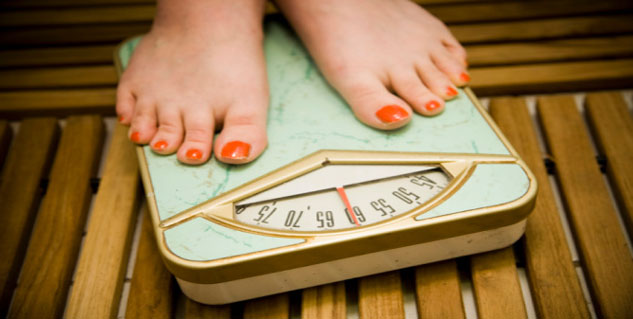Twinkie Diet: Empty Calories, Full Wisdom
When news of nutrition professor Mark Haub's amazing junk food only 27 pound weight loss over two months hit the airwaves, I know I scratched my head. And making that spot a bit red, I scratched some more when I heard that not only he lost the weight but that his bad cholesterol went down by 20 percent, his good cholesterol went up 30 percent, and his triglycerides were reduced by 39 percent. True, there was a protein shake and some nibbled-on veggies thrown in there during the day, but for the most two-thirds of this guy's calories and food choices were coming from what we all would deem "bad" stuff.
When I made it to the office that day, for some reason I was compelled to pull Steven Johnson's pop culture rebel of a book, "Everything Bad Is Good For You," a book that makes a rather compelling argument from a brain side of things why TV these days may be a neural-network-complexity-enhancer when we think of the simultaneous levels of processing reality TV has forced our brains to evolve to when being "entertained." Perhaps we are now subliminally doing cross training on our prefrontal cortexes while we shudder and shriek with things like "can you believe they just did that?" Similarly, this new study that challenges potentially some aspects of what healthy eating means begs an application article this to link some of the hidden neurophilosophical nuggets we all burn through too quickly to notice, in ways that echo the empty junk food calorie that may get a bad rap. So let's unpack a few takeaways from this study and see what can be said about wisdom, behavior change, and other life lessons.
1) Be careful what you wish for it may come true ... including weight loss. This timeless statement has always reminded us to keep in mind what we go after and if how we go after things matters as much as what we attain from it. Mark Haub's study conveys rather clearly weight loss is a pure calories game in the short term, but we know not what the long term ramifications of something like this may be. But what I think is most amazing, given what I have studied about the prevalence of strategic half-truths that confound much of strategic thinking at home and at work is how the perpetuation of something potentially bad for us always gets paired with one primary, desired positive side effect (the weight loss) but a secondary positive effect that is usually unexpected and arguably beyond our grasp of reason (the internal health parameters of cholesterol getting affected). This latter effect gets relegated by our brains as being for some reason more powerful and gets overinflated as the correlation to why we may continue that behavior longer than we ought to. I have spoken to many people randomly about this study and the secondary effect seems more related to why someone would do this and continue to do this type of diet over a long haul. Such over inflation prevents the brain from seeing new data, new context, and new invitations for change. For we know not here a "third level of consequences."
2) I don't know. Man, do I love this phrase. When I was curious if Mark Haub would get bit by the sensationalism bug after this study, he pulled back. In a very genuine way, you could read and hear the conflict within him as he shared the results of this study. This "both/and-ness" of a guru who shares his new finding and yet affectively lives in the tension of what we tend to do when we get addicted to knowing----this was the presence I felt in getting inside this guy's research announcement. To me, this was as amazing as the result itself. You see, most limitations of research get put rather automatically to the conclusions section of a research paper, and if you read one of these peer reviewed articles they read very "cognitively"and you get a sense one is just listing them just because they are compelled to do so. I think Mark goes one step beyond in inviting in the ambivalence as not a limitation but as something to be learned from as well as perhaps a wisdom nugget in and of itself.
3) Eating healthy and being healthy may not be the same thing. When Mark Haub alluded that he had tried diets that were healthier in food choices (grains, veggies, fruits, etc) he tended to not lose weight and he actually ate more. This to me begs two philosophical questions: Is eating more necessarily undesirable? And is too much of something good potentially undesirable? The answer is likely sometimes yes, sometimes no for both. Eating more when done right may not have us lose weight but may decrease long term risk of cancer. And taking "one right, good thing" and overdoing it is always foolish in a world rich with complexities and systems that need balancing, eccentricities, and ultimately authenticity. Take it from me. I was a shrink for years and if "unconditional positive regard" and empathy was a legume, well, let's say I swallowed much of this strategic teaching of how to connect with people almost to a belly-distending fault. For I was not taught about the humility of being an expert, and instead turned EQ into a strategic conversational process that leaked heart slowly over the years. And to keep one in a self-indulgent fog, do not worry---there was always someone calling you brilliant regardless, thereby keeping you in the comfort of your "one food diet."
Perhaps this study holds more wisdom than we think. Nothing junky about it. Crème-filled wisdom in a Twinkie.
-
Is eating 6 times a day really the best weight loss diet?
May be. May be not!Eating six times a day, instead of three square mea
-
Easy Ways To Take Off Excess Pounds
Obesity is a physical burden as well as a mental burden to those
-
3 Fat Burning Interval Training Workouts to Lose Stomach Fat
Old school fat loss is out, and new school fat burning workouts a
-
Misconceptions about Losing Weight
Misconception: Strict diet speed up metabolism. Truth: It is exercise
-
Getting Through The Holidays Without Gaining Weight
Now that the holiday season is here, holiday foods and meals take cent
-
How you can Burn Fat and Feed Muscle Easily
How to burn fat and feed muscle is knowledge that is critical for o
- DON'T MISS
- Ways to Reduce Belly Fat
- Hypnosis Stimulates Fast Weight Loss
- The Unappetising Reality About Single Food Diet Plans & Weight Loss
- Understanding The Glycemic Index
- Eliminating the Excess Pounds Naturally
- Turn Your Focus on Your Health by Losing Fat
- The Real Life Theory of ‘Fat and Jolly’
- Understanding Your Body Type
- Ten Ways To Lose Belly Fat
- The Ultimate Fat Loss Circuit




